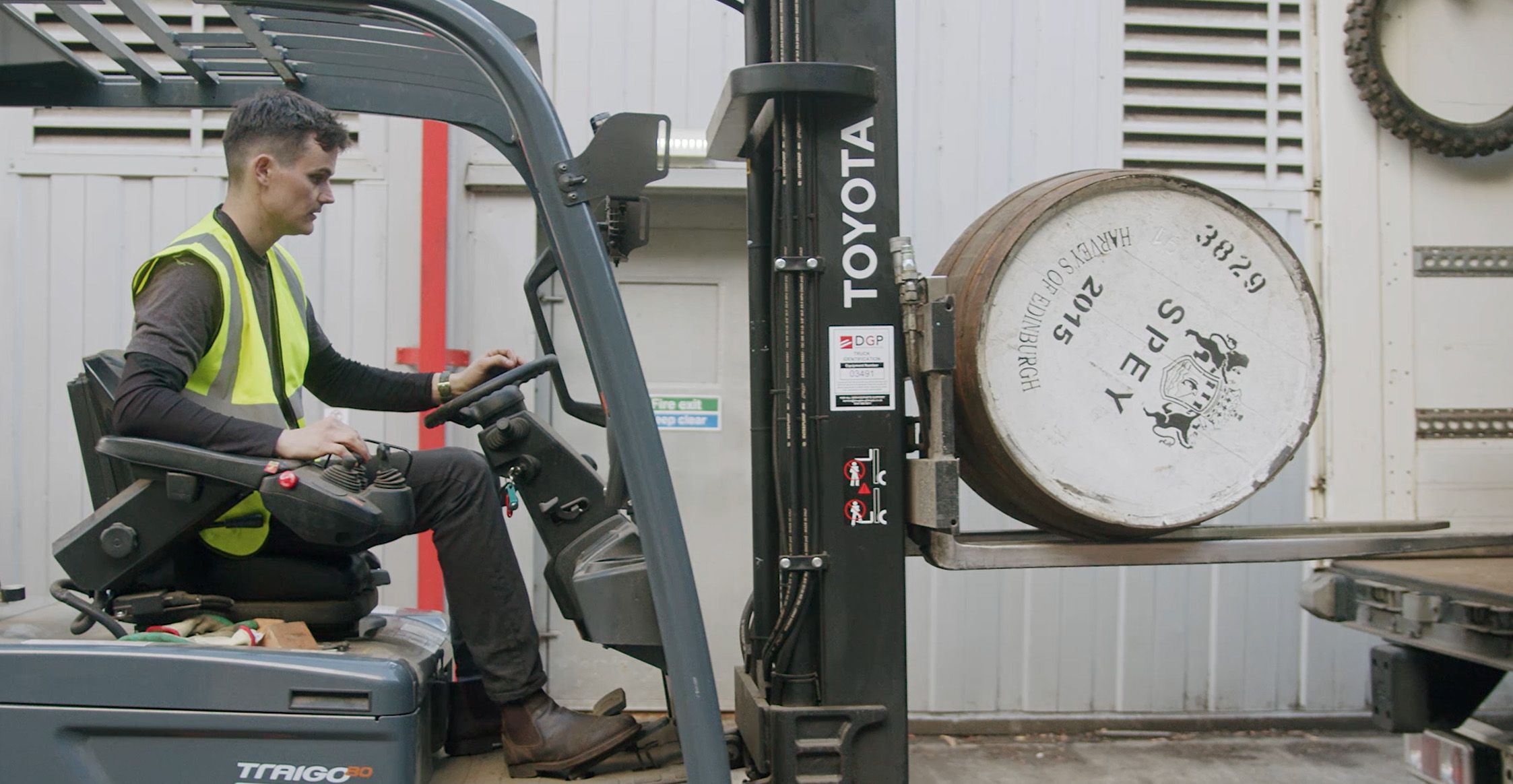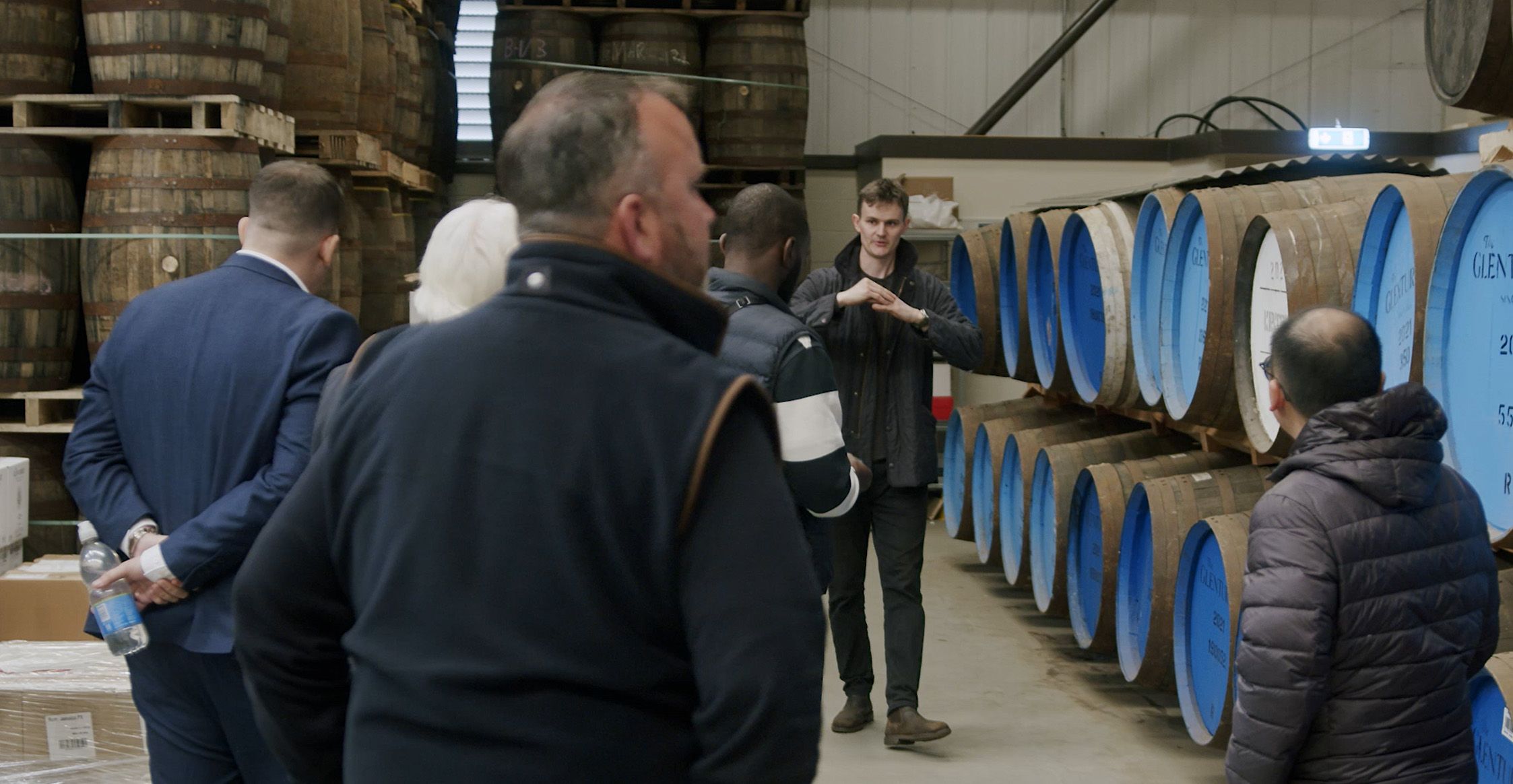
What is a Delivery Order?

Victoria O'Brien
Head of Content at London Cask Traders
A Delivery Order (D.O.) is a document issued by a bonded warehouse, every time ownership and control of a whisky cask is transferred from one party to another. Essentially it functions as a 'title deed' for the cask, confirming it now belongs to a new buyer. Anyone considering investing in cask whisky, should be aware of the crucial role a Delivery Order has in safeguarding your asset.
What does a Delivery Order look like?
In simple terms, you might consider a Delivery Order as similar to a logbook for a car; it legally records the current registered keeper, as well as providing details of provenance and current storage. There is no standard format for a Delivery Order and the appearance of the documents will vary from warehouse to warehouse. However, the function of the Delivery Order as a document remains the same.
A proper Delivery Order should include:
- Full names of both the buyer and seller
- The cask reference number (this is essential)
- Details of the whisky (including type, distillery and year)
- The warehouse and address where the cask is stored
- The date of transfer
Without this document, you don't have a verifiable claim to ownership, which can leave you vulnerable to potential issues especially when it comes to selling your cask in the future.

What is the Difference Between and Delivery Order and a Certificate of Ownership?
A cask certificate, or certificate of ownership, has no legal significance in the Scotch Whisky industry. Throughout Scotland, transferring ownership of a cask stored in a bonded warehouse is recorded by means of a Delivery Order.
Furthermore, under Scots law a cask of whisky is classified as 'moveable property', meaning if the cask physically remains in the same place, ie: warehouse, without a Delivery Order it could be assumed there is also no change in owner.
While a Certificate of Ownership might sometimes be provided to investors, this is often simply an internal document and does not hold the same legal weight as a Delivery Order. The key distinction is that a Certificate of Ownership does not notify the warehouse about the change of ownership, and therefore doesn't guarantee the proper recording of the transfer in the warehouse's system.
If a cask investment company or broker does not provide you with a Delivery Order, it should raise significant concerns. While not all companies that fail to offer a D.O. are out to scam investors, they may lack the necessary infrastructure to properly transfer ownership. It's worth noting some investment companies or brokers may only deal with warehouses that aren't necessarily set up to issue Delivery Orders for individual investors (the administration involved in servicing hundreds of clients, as opposed to fewer clients each owning hundreds of casks is obvious). However, this lack of administrative capability is often a red flag and it's crucial to work with a company like London Cask Traders that only collaborate with warehouses equipped to handle private accounts, ensuring each individual investor's ownership is properly recorded.
Why is a Delivery Order Important for Private Investors?
As a private individual investing in whisky casks, a Delivery Order is crucial for several reasons:
1) Proof of Ownership
A Delivery Order serves as official proof that the cask belongs to you. This becomes essential, especially when it comes to transferring ownership of your cask in the future. Without a D.O., you may find yourself in a situation where the warehouse does not acknowledge you as the owner, which could lead to complications when you attempt to insure, bottle or sell your cask.
2.) Monitoring and Control
With a Delivery Order in hand, you can monitor your cask's maturation and progress, arrange regauging (testing the whisky's alcohol by volume content), and even request samples. This level of control is essential for ensuring the value of your investment. Without a D.O., coordinating these functions with the warehouse becomes significantly more difficult.
3.) Protection Against Fraud
One of the most significant risks in whisky cask investment is the potential for fraud. If you do not have a D.O. there is a risk, however small, that the cask could be sold without your knowledge or that the cask doesn't actually belong to you. In the worst case, a cask could be sold multiple times to different investors, leaving you without recourse.
4.) Reassurance and Security
A Delivery Order gives investors peace of mind, similar to receiving the V5C (logbook) when buying a car. Just like the logbook confirms the ownership of a vehicle, a D.O. confirms your ownership of a whisky cask. This document reassures investors about the provenance of the cask and its storage history, further bolstering your investment's security.

Why Request a Delivery Order if it isn't Legally Required?
Although the Finance Act of 2006 repealed any strict legal requirement for Delivery Orders, they remain the industry standard for transferring whisky cask ownership. The reason is simple: Delivery Orders ensure transparency and compliance with existing regulations such as HMRC's Excise Notice 196, which governs the storage and transfer of duty-suspended goods.
For whisky cask investors, a Delivery Order is essential as it confirms your legal ownership of the cask and enables access to key services like regauging and insurance. Without a D.O., you risk complications when selling, insuring or managing your cask investment. While the law no longer officially requires Delivery Orders, it remains industry best practice and private investors should always insist on receiving one to safeguard their investment.
At London Cask Traders, we only work with HMRC bonded warehouses set up to manage and facilitate individual and private cask ownership. We consider it standard practice to issue all our clients with a Delivery Order for every cask they purchase, ensuring the long-term security and integrity of your investment.

Victoria O'Brien
Head of Content at London Cask Traders
